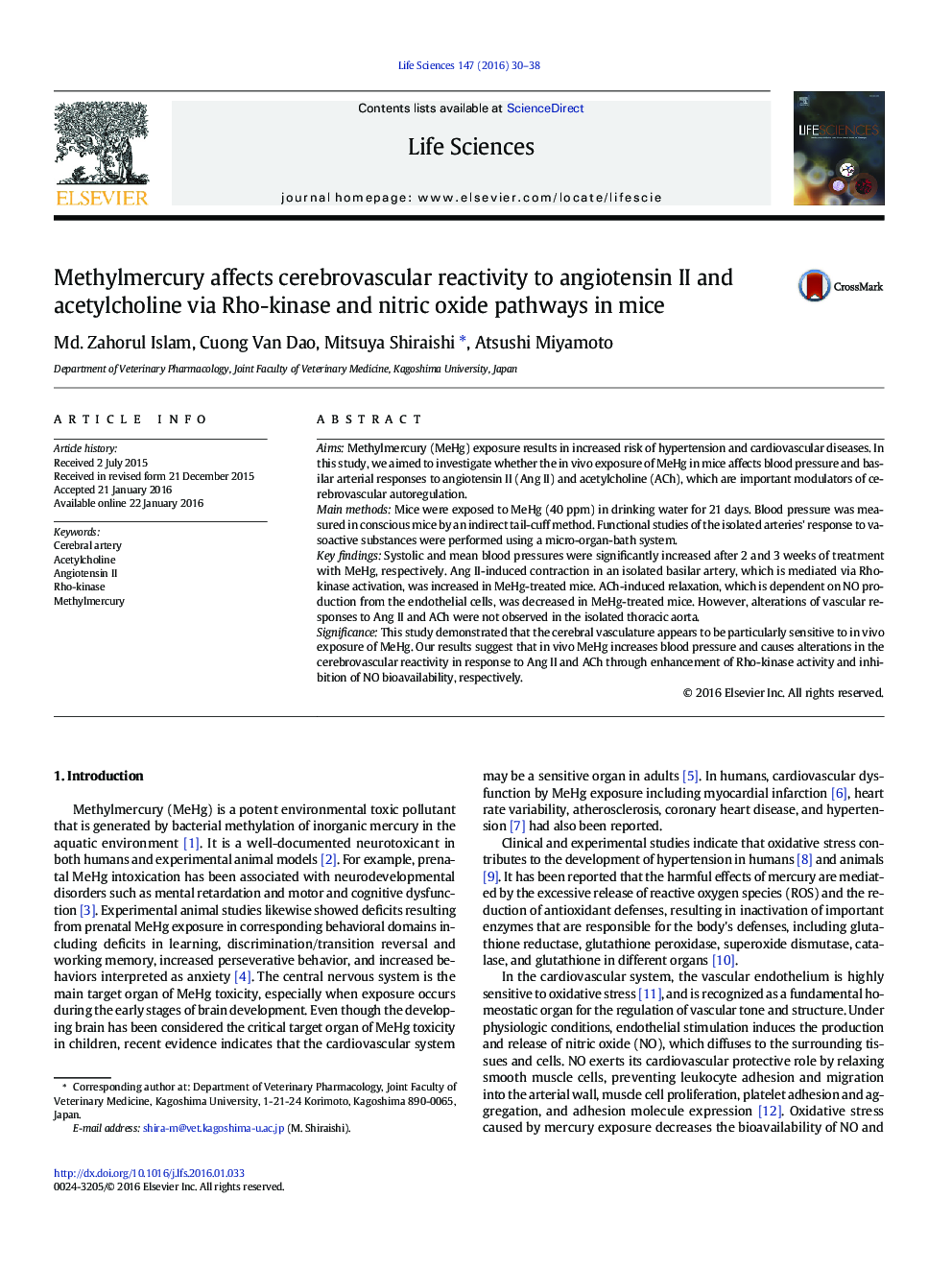| Article ID | Journal | Published Year | Pages | File Type |
|---|---|---|---|---|
| 2550582 | Life Sciences | 2016 | 9 Pages |
AimsMethylmercury (MeHg) exposure results in increased risk of hypertension and cardiovascular diseases. In this study, we aimed to investigate whether the in vivo exposure of MeHg in mice affects blood pressure and basilar arterial responses to angiotensin II (Ang II) and acetylcholine (ACh), which are important modulators of cerebrovascular autoregulation.Main methodsMice were exposed to MeHg (40 ppm) in drinking water for 21 days. Blood pressure was measured in conscious mice by an indirect tail-cuff method. Functional studies of the isolated arteries' response to vasoactive substances were performed using a micro-organ-bath system.Key findingsSystolic and mean blood pressures were significantly increased after 2 and 3 weeks of treatment with MeHg, respectively. Ang II-induced contraction in an isolated basilar artery, which is mediated via Rho-kinase activation, was increased in MeHg-treated mice. ACh-induced relaxation, which is dependent on NO production from the endothelial cells, was decreased in MeHg-treated mice. However, alterations of vascular responses to Ang II and ACh were not observed in the isolated thoracic aorta.SignificanceThis study demonstrated that the cerebral vasculature appears to be particularly sensitive to in vivo exposure of MeHg. Our results suggest that in vivo MeHg increases blood pressure and causes alterations in the cerebrovascular reactivity in response to Ang II and ACh through enhancement of Rho-kinase activity and inhibition of NO bioavailability, respectively.
